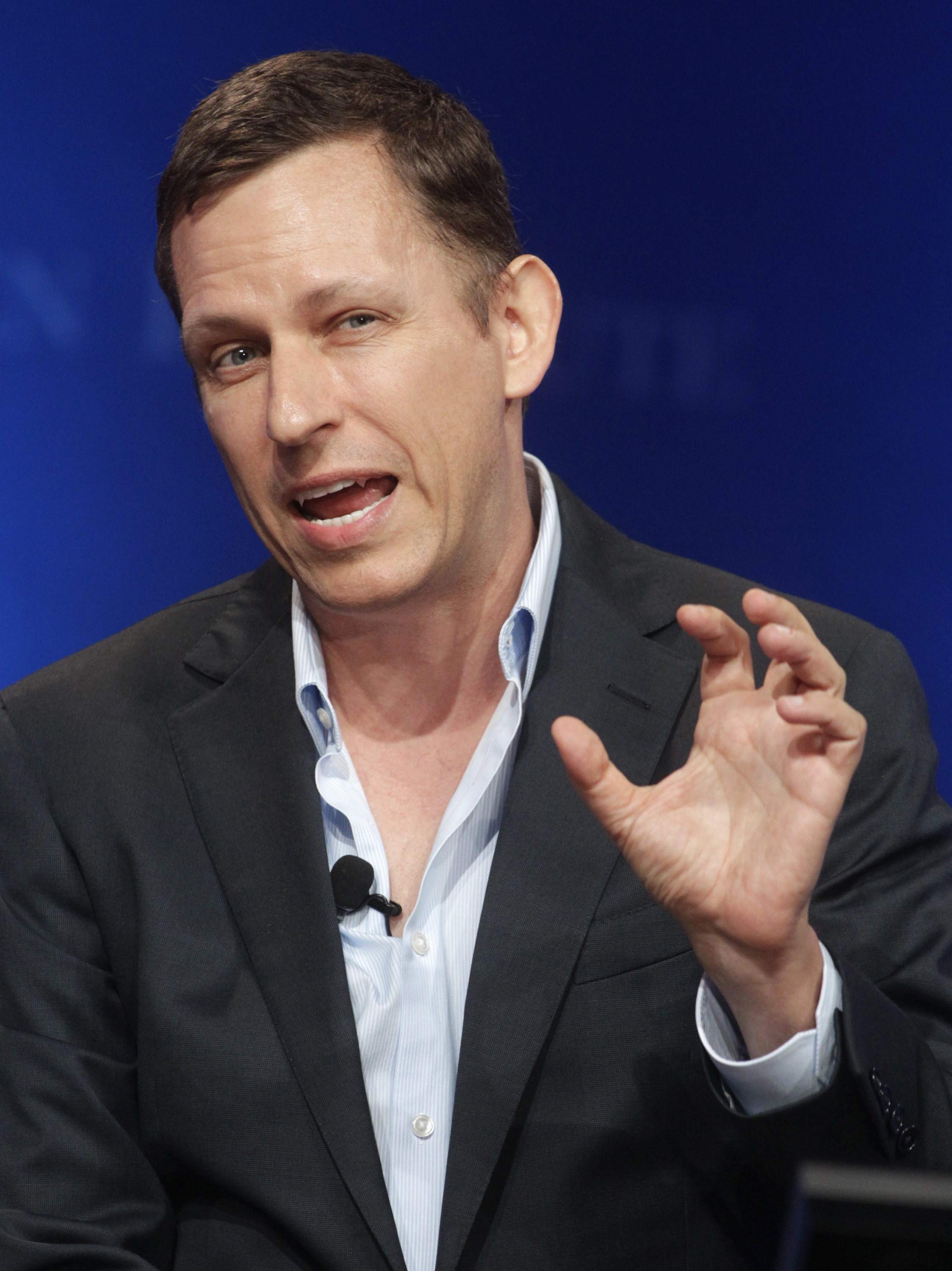In defense of Peter Thiel's vampirism
I, too, would like to live to be 1,000


If you were looking for another reason to dislike Peter Thiel — billionaire tech magnate (he co-founded PayPal), libertarian extremist, destroyer of news organizations, endorser of Donald Trump — well here's a doozy: Now he wants to harvest the blood of the young so he can live forever.
In a recent report in Inc., Thiel is potrayed as intensely interested in parabiosis, in which the blood of a young organism is transfused into an older organism. Studies in mice have shown some remarkable age-reversing effects of such transfusions, and trials to see if the same might be true in humans are underway. Is Thiel already keeping a cadre of blood-slaves captive in his supervillain lair inside a hollowed-out mountain somewhere in the Pacific? Who knows.
But before you spit out your morning coffee, let me suggest that while the thought of Silicon Valley billionaires who are also literally vampires may not seem like such a great thing, we shouldn't reject this idea merely because of who's most likely to take advantage of it first. There has been accelerating interest in "curing" aging in recent years (not coincidentally as the Baby Boomers are nearing their dotage), and the Masters of the Universe who rule the tech industry are reportedly obsessed with the topic. So it's worth asking what might happen to us if they actually succeed.
The Week
Escape your echo chamber. Get the facts behind the news, plus analysis from multiple perspectives.

Sign up for The Week's Free Newsletters
From our morning news briefing to a weekly Good News Newsletter, get the best of The Week delivered directly to your inbox.
From our morning news briefing to a weekly Good News Newsletter, get the best of The Week delivered directly to your inbox.
As a society, we probably won't get to decide whether radically extending our lives is good or bad. If and when someone figures out how to do it, the technology will spread with incredible speed, because the demand will be so great.
Will it exacerbate inequality? Won't the people who benefit from it be billionaires like Thiel, living into their 200s on their island paradises while the rest of us wretched refuse expire at the tragically young age of 80 or 90?
Probably. The benefits of most technological innovations flow first to the wealthy. But the real answer is, it depends. It depends on what the life-extension technology actually is. If blood transfusions from young to old actually had a significant effect, they could be shared pretty widely. Transfusions could be simple, easy, and probably cheap, at least relatively speaking. We wouldn't need million-dollar machinery, or complex computer modeling, or a bunch of white-coated lab techs wielding pipettes. Run a line into your bloodstream, hang a bag of that sweet red gold, and you're ready to watch the years melt away.
And as for the young people being sucked dry by their greedy elders? There'd be something in it for them too. Giving blood isn't all that painful or time-consuming, and if we paid them, say, $100 a pint, you'd have no shortage of youngsters stopping by the blood center for some extra cash.
A free daily email with the biggest news stories of the day – and the best features from TheWeek.com
In most fictional treatments of this topic, humans (or one human) finally achieve immortality, only to discover that it's a curse. They live out their lives in one manner of misery or another, desperate to die but unable to figure out how to off themselves. But in reality, it would probably be much different. Radical life extension would be good for the individuals who took advantage of it; it's society as a whole that would suffer.
Many believe that the shortness of life gives it pleasurable urgency and lends meaning to the things we do. But there's little reason to believe that while a life lived in 80 years is meaningful, one lived in 160 or 240 would be dull and purposeless. You could just as easily predict that people would be able to spend half a century working for Doctors Without Borders, then spend another 50 years traveling, creating great art, or sampling whatever other experiences they wanted.
But as great as it might be to have all that time at your disposal, the truth is that the advancement of civilization requires turnover. Artists and scientists often reach the peak of their creative powers early in their careers. We need constant infusions of new ideas, new perspectives, new blood (ha!) in order to keep progressing. What happens when the CEO or the tenured professor in his 15th decade refuses to step aside so someone can take his place? Are your great-great-great grandchildren going to want you around pinching their cheeks?
If that worries you, at least you can take solace in the fact that we haven't gotten there yet (and maybe you'll be dead by the time we do). There have been many false starts in this area lately — remember resveratrol, the supposedly magical chemical in red wine? Turned out it couldn't make you live forever. But the impulse is a constant in human history. As soon as the first cave dweller realized he was going to die one day, he started wishing for immortality. There is a reason why all religions, everywhere and at every time, have one thing in common: the promise of eternal life. Some say they'll grant it through ascent to heaven, some through infinite reincarnation, but all say the same thing to their current and potential adherents: Believe, and you will be free from death.
But science may actually be able to do it — or if not make people immortal, at least enable us to live much longer than we do now. If you could, would you want to live to be 150, or 250, or 1,000? I've asked dozens of people that question, and almost none answer that they would. Which gives me something in common with Peter Thiel, I suppose. I'd love to find out what the world would be like in 100 or 1,000 years, since I'm sure it will be much more interesting than it is now — after all, isn't today's world more complex and fascinating than the one of 1916 or 1016?
So for purely selfish reasons, I'm hoping our brave scientists discover how to keep us alive long past what we now expect. And if harvesting the blood of the young is what it takes, that's OK — they've got plenty to spare.
Paul Waldman is a senior writer with The American Prospect magazine and a blogger for The Washington Post. His writing has appeared in dozens of newspapers, magazines, and web sites, and he is the author or co-author of four books on media and politics.
-
 Biggest political break-ups and make-ups of 2025
Biggest political break-ups and make-ups of 2025The Explainer From Trump and Musk to the UK and the EU, Christmas wouldn’t be Christmas without a round-up of the year’s relationship drama
-
 Why 2025 was a pivotal year for AI
Why 2025 was a pivotal year for AITalking Point The ‘hype’ and ‘hopes’ around artificial intelligence are ‘like nothing the world has seen before’
-
 The best drama TV series of 2025
The best drama TV series of 2025the week recommends From the horrors of death to the hive-mind apocalypse, TV is far from out of great ideas
